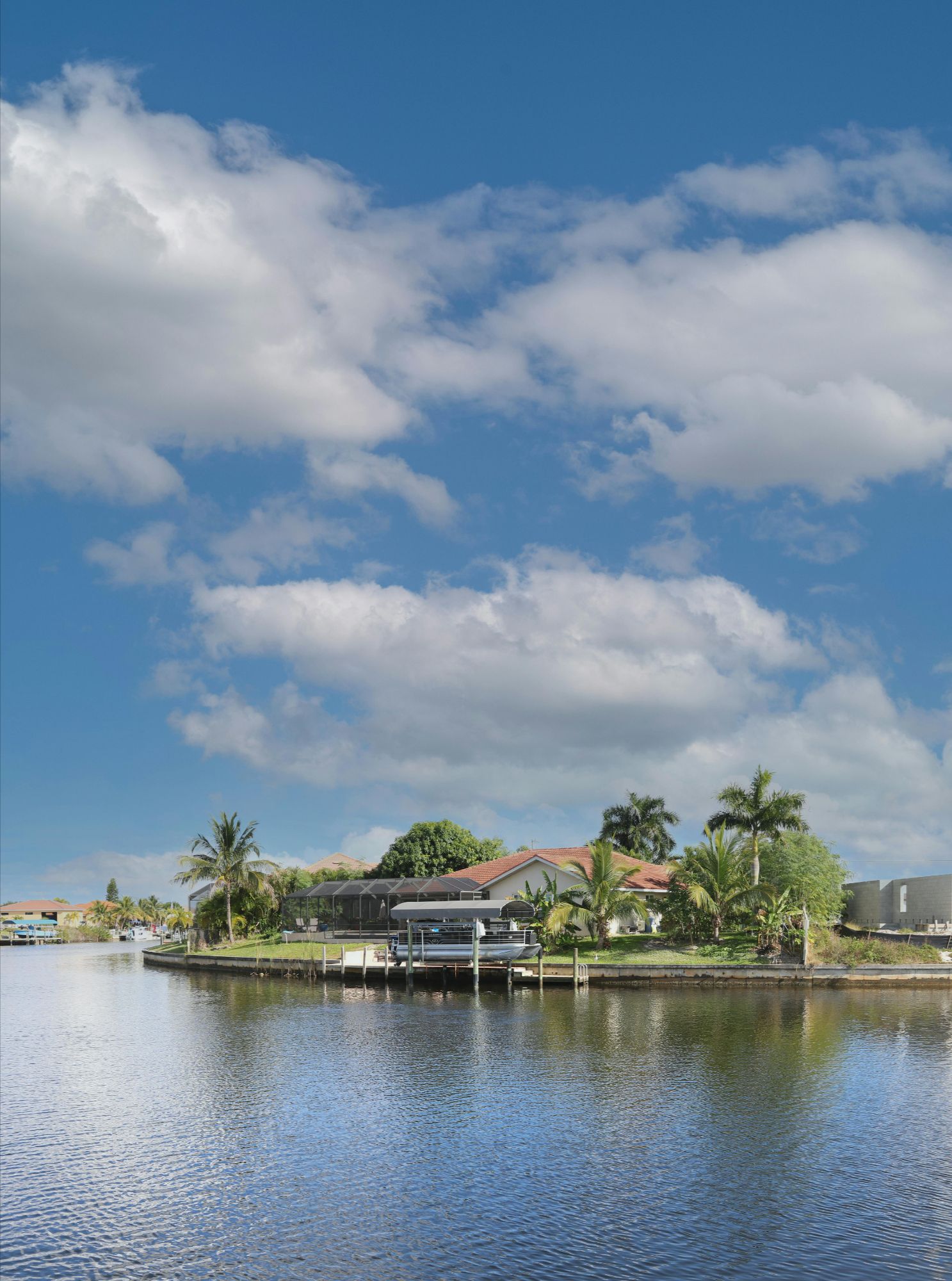5 Key Considerations when Buying a Waterfront Property
Buying a waterfront property is a dream for many, offering serene views, recreational opportunities, and a unique lifestyle. However, purchasing a home on the water comes with considerations and challenges.
 1. Type of Waterfront
1. Type of Waterfront
- Oceanfront: Offers stunning views and beach access but comes with higher erosion risks and storms.
- Lakefront: Typically provides a more tranquil setting with boating, fishing, and swimming.
- Riverfront: Often offers picturesque views and activities like kayaking but may have fluctuating water levels and flooding risks.
- Canalfront: Provides direct boat access and often more affordable prices but may have less natural beauty than lakes or oceans.
2. Location
Location is crucial when buying any property, but it’s especially important for waterfront homes. Consider the following:
- Proximity to Amenities: Ensure the property is conveniently located near shops, restaurants, healthcare facilities, and other amenities.
- Accessibility: Check the availability of roads and transportation options. Some waterfront properties may be more remote and harder to reach.
- Community and Lifestyle: Visit the area to get a feel for the community. Are there activities and amenities that match your lifestyle?
 3. Costs
3. Costs
Waterfront properties often come with additional costs beyond the purchase price:
- Insurance: Flood and windstorm insurance can be significantly higher for waterfront properties.
- Maintenance: Properties near water require more upkeep due to moisture, salt, and weather exposure. Factor in the costs of maintaining docks, seawalls, and other structures.
- HOA Fees: Some waterfront communities have homeowners’ associations with mandatory fees for shared amenities and maintenance.
4. Regulations and Restrictions
Waterfront properties are subject to various regulations and restrictions that can affect your use and enjoyment of the property:
- Zoning Laws: Verify the zoning regulations to ensure you can use the property as intended.
- Environmental Regulations: Be aware of any environmental protections that limit development or alterations on the property.
- Water Rights: Understand your rights to the water, including access and usage.
 5. Property Inspection
5. Property Inspection
A comprehensive inspection is critical for waterfront properties:
- Structural Integrity: Ensure the home is structurally sound and can withstand the elements. Pay special attention to the foundation, roofing, and any wooden structures.
- Water Quality: Test the water quality if the property includes access to a private well or septic system.
Categories
Recent Posts

Maximize Your Profit When Selling Your Home

Spring Sale Success using the Lucido Listing Blitz®

Spring Sale Prep PART ONE: Maximizing Your Spring Real Estate Strategy

Spring Sale Prep PART TWO: Preparing Your Home

Real Estate Investing: Avoid Costly Mistakes with Insights from Bob Lucido

Why Listing Now Could Be Better Than Waiting for Spring

SOLD Success using the Lucido Listing Blitz®

The Power of Compound Interest in Real Estate Investing

How One Investment Property Can Cover Your College Costs

Make Money While You Sleep: Passive Income Through Real Estate